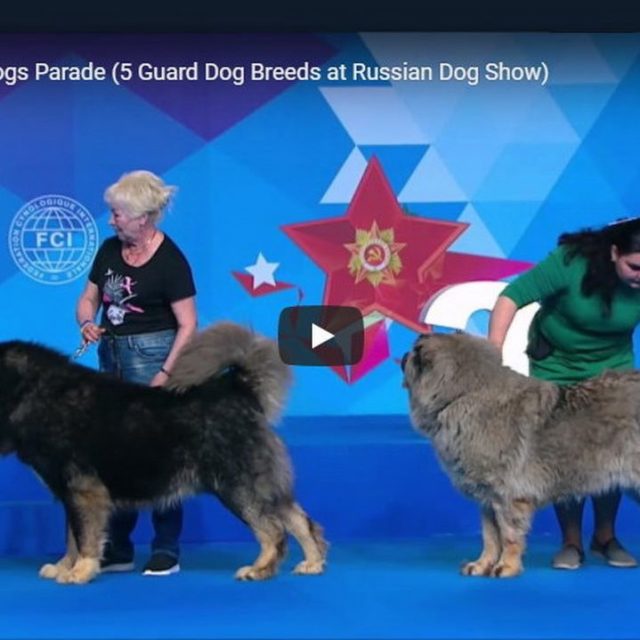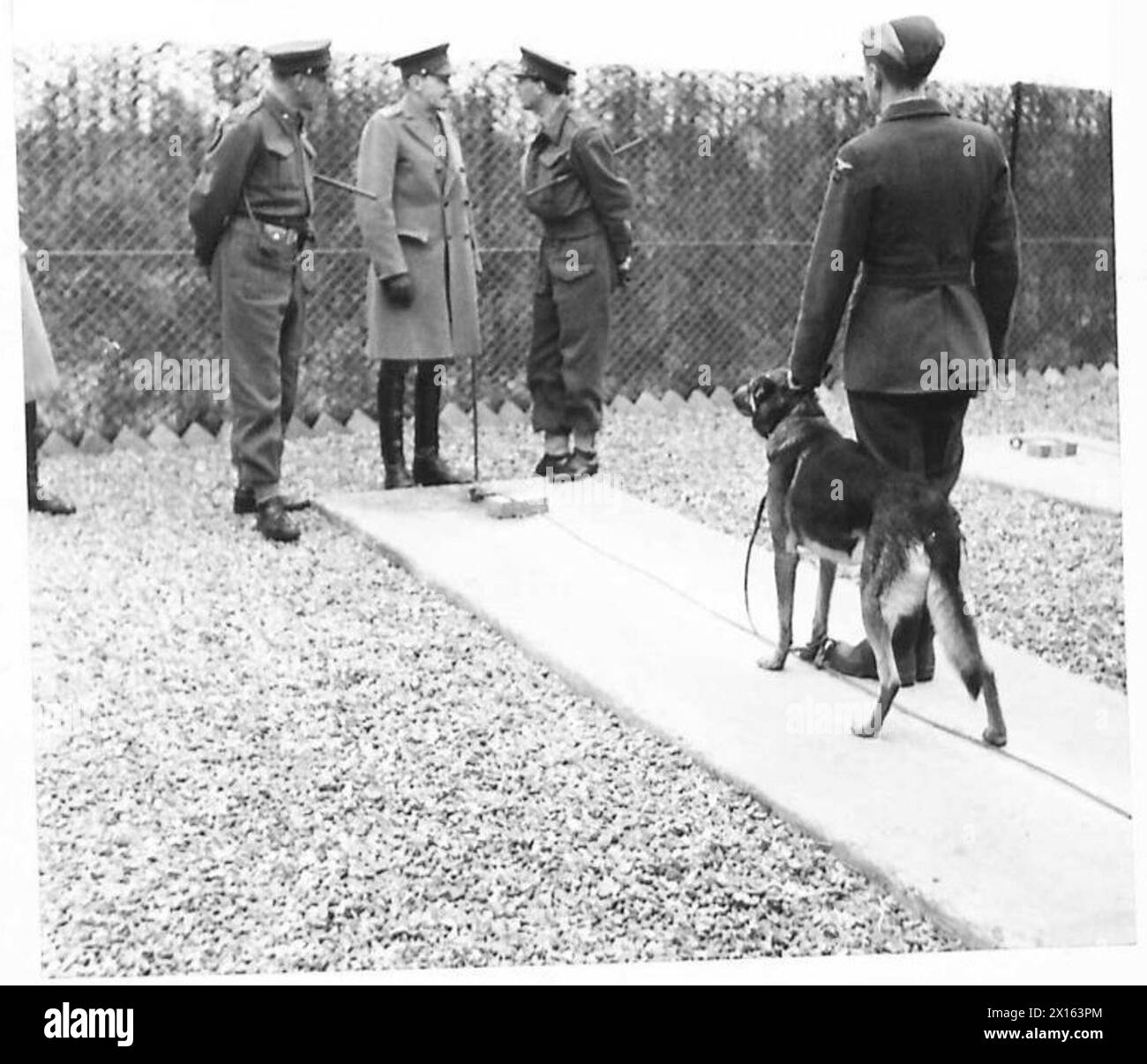When we talk about Russian jail guard dogs, we're stepping into a world where loyalty meets fearlessness. These aren't your ordinary pets—these are highly trained, elite canines bred for one purpose: to protect and intimidate. Imagine walking into a prison yard, and there they are—massive beasts with piercing eyes and a growl that could make even the toughest inmate flinch. It's not just about guarding; it's about creating an atmosphere of absolute control.
Now, before we dive deep into this world, let's set the scene. Russia has a long history of using dogs in law enforcement and military operations. But the role of jail guard dogs takes it to another level. These dogs are more than just animals—they're tools of authority, carefully selected and trained to handle some of the most dangerous environments on the planet.
And if you're wondering why these dogs are so feared, well, we're about to break it all down. From their training to their breeds, we'll explore what makes Russian jail guard dogs such an intimidating force. So buckle up, because this isn't just a story—it's a deep dive into a world where man's best friend becomes man's fiercest enforcer.
Read also:Spice Up Your Life With Angry Grandma Chili Oil
Table of Contents
- The Rich History of Russian Guard Dogs
- Top Breeds Used as Russian Jail Guard Dogs
- Intense Training: Turning Pups into Powerhouses
- The Roles They Play in Prisons
- Why Are They So Feared?
- Interesting Facts About These Canines
- Comparing Them to Other Guard Dogs
- Legal Aspects and Ethical Concerns
- Incidents Involving Russian Jail Guard Dogs
- The Future of Russian Guard Dogs
The Rich History of Russian Guard Dogs
Let's rewind for a moment and explore how Russian jail guard dogs came to be. Way back in the Soviet era, dogs played a crucial role in the country's security apparatus. The Soviet Union invested heavily in canine training programs, producing dogs that were not only physically strong but also incredibly intelligent. These programs laid the foundation for the modern-day Russian jail guard dogs we see today.
One of the most famous breeding programs was established in the 1930s at the Red Star Kennel. This facility focused on creating dogs specifically tailored for military and law enforcement purposes. The results? Breeds like the Black Russian Terrier, which became synonymous with strength and loyalty. And while the kennel has evolved over the years, its legacy lives on in the form of these powerful guard dogs.
From Military to Prisons: The Evolution
As the Soviet Union transitioned to modern Russia, the role of these dogs shifted slightly. While they were still used in military operations, their presence in prisons became increasingly prominent. Prisons in Russia are notoriously tough environments, and the addition of highly trained guard dogs only amplified the level of control and discipline. It's not just about scaring inmates; it's about maintaining order in places where chaos can easily erupt.
And let's not forget the psychological impact. The mere presence of these dogs sends a clear message: "Don't mess with us." This psychological warfare is as much a part of their job as any physical action they might take.
Top Breeds Used as Russian Jail Guard Dogs
Not every dog can handle the demands of being a jail guard. These are some of the toughest breeds in the world, bred specifically for this role. Let's take a look at a few of the top contenders:
- Black Russian Terrier: Known for its intelligence and strength, this breed is often considered the ultimate guard dog. It's loyal, fearless, and capable of handling even the most dangerous situations.
- Caucasian Shepherd: With its massive size and protective nature, the Caucasian Shepherd is a force to be reckoned with. Its loyalty to its handlers is unmatched, making it a perfect choice for high-security environments.
- East European Shepherd: Developed in the Soviet Union, this breed combines the best traits of German Shepherds with added strength and endurance. It's agile, smart, and highly trainable.
Why These Breeds Stand Out
What sets these breeds apart is their combination of physical strength and mental toughness. They're not just big dogs—they're intelligent animals capable of making split-second decisions. This intelligence is crucial in a prison setting, where every moment can be unpredictable.
Read also:Harper Hawk Tua The Majestic Legend Of The Skies
Plus, their loyalty to their handlers is unmatched. These dogs form deep bonds with their trainers, which enhances their effectiveness in their roles. It's this combination of traits that makes them so effective as jail guard dogs.
Intense Training: Turning Pups into Powerhouses
Training a Russian jail guard dog isn't for the faint of heart. These dogs undergo rigorous programs designed to prepare them for the toughest environments imaginable. The process starts early, often when the pups are just a few months old. They're introduced to a variety of scenarios, from basic obedience to advanced attack training.
One of the key aspects of their training is socialization. These dogs need to be comfortable in chaotic environments, so they're exposed to loud noises, large crowds, and unpredictable situations from a young age. This helps them remain calm and focused, even in the most intense moments.
Specialized Skills They Learn
Here are some of the specialized skills these dogs are trained in:
- Tracking: They're taught to track scents, which is crucial for finding escaped prisoners or detecting contraband.
- Attack and Defense: These dogs are trained to attack on command and defend their handlers against threats.
- Obedience: Despite their size and strength, they must remain obedient to their handlers at all times.
This combination of skills makes them invaluable assets in any high-security environment.
The Roles They Play in Prisons
Russian jail guard dogs serve a variety of roles within prison settings. Their primary function is to maintain order, but they also assist in other areas, such as:
- Patrols: They accompany prison guards on patrols, helping to deter and detect any potential threats.
- Searches: These dogs are often used to search cells for contraband items like weapons or drugs.
- Escapes: In the event of an escape, these dogs are deployed to track and apprehend the fugitive.
It's worth noting that their presence alone can act as a deterrent. Inmates know that these dogs are highly trained and capable of taking them down in seconds, which discourages many from attempting escape or causing trouble.
Why Are They So Feared?
The fear factor surrounding Russian jail guard dogs is real, and it's not without reason. These dogs are bred and trained to be intimidating. Their size, strength, and sheer ferocity make them a force to be reckoned with. But it's not just about their physical attributes—it's also about their reputation.
Stories of these dogs taking down prisoners or stopping riots have spread far and wide, adding to their intimidating aura. And while some might argue that their role is cruel, there's no denying their effectiveness in maintaining order within prison walls.
Psychological Impact on Inmates
The psychological impact of these dogs cannot be overstated. Inmates who have faced them often speak of their fear and respect for these animals. It's not just about the physical threat; it's about the knowledge that these dogs are loyal to their handlers and will act without hesitation if commanded.
Interesting Facts About These Canines
Here are a few interesting facts about Russian jail guard dogs:
- Some of these dogs are trained to work in extreme weather conditions, making them suitable for Siberian prisons.
- They're often paired with handlers who have worked with them since they were pups, creating a strong bond.
- Despite their intimidating presence, these dogs are known to be incredibly loyal and affectionate to their handlers.
These facts highlight the complexity of these animals. They're not just tools of authority; they're living creatures with unique personalities and traits.
Comparing Them to Other Guard Dogs
When you compare Russian jail guard dogs to other guard dogs around the world, they stand out in several ways. While breeds like German Shepherds and Rottweilers are also used in similar roles, the Russian breeds tend to be larger and more intimidating. This size difference gives them an edge in high-security environments where sheer physical presence matters.
Additionally, their training programs are often more intense, focusing on scenarios specific to Russian prisons. This specialized training makes them uniquely suited for their roles.
Legal Aspects and Ethical Concerns
Of course, the use of these dogs in prisons raises legal and ethical questions. While they're effective in maintaining order, some argue that their use constitutes cruel treatment. There have been calls for stricter regulations on how these dogs are used, particularly in situations where force is involved.
On the flip side, proponents argue that their presence helps prevent violence and ensures the safety of both inmates and staff. It's a complex issue with no easy answers, but one that continues to be debated in legal and ethical circles.
Incidents Involving Russian Jail Guard Dogs
Over the years, there have been several high-profile incidents involving Russian jail guard dogs. Some have been positive, showcasing their bravery and effectiveness. Others, however, have raised questions about their use. For example, there have been reports of dogs attacking innocent inmates or even prison staff, highlighting the need for better control and training.
Despite these incidents, the overall consensus is that these dogs play a vital role in maintaining order in Russian prisons. Their presence alone is often enough to prevent many potential issues.
The Future of Russian Guard Dogs
As technology continues to evolve, the role of Russian jail guard dogs may change. While they'll always have a place in high-security environments, advancements in surveillance and other security measures could reduce their reliance. However, their unique combination of physical strength and intelligence ensures that they'll remain a key component of prison security for years to come.
So, what does the future hold for these incredible animals? Only time will tell, but one thing is certain—they'll continue to be a formidable presence in Russian prisons and beyond.
Conclusion
As we wrap up this deep dive into the world of Russian jail guard dogs, it's clear that these animals play a vital role in maintaining order in some of the toughest environments on the planet. Their combination of physical strength, intelligence, and loyalty makes them invaluable assets to prison authorities.
But it's not just about their effectiveness—it's about the respect and fear they command. Their presence alone can deter trouble, making them a powerful tool in maintaining peace and order within prison walls.
So, the next time you hear about Russian jail guard dogs, remember this: they're more than just animals—they're symbols of authority, strength, and loyalty. And if you ever find yourself in a Russian prison, just remember—these dogs are watching.
What are your thoughts on Russian jail guard dogs? Share your comments below or check out our other articles for more insights into the world of canines and beyond!


